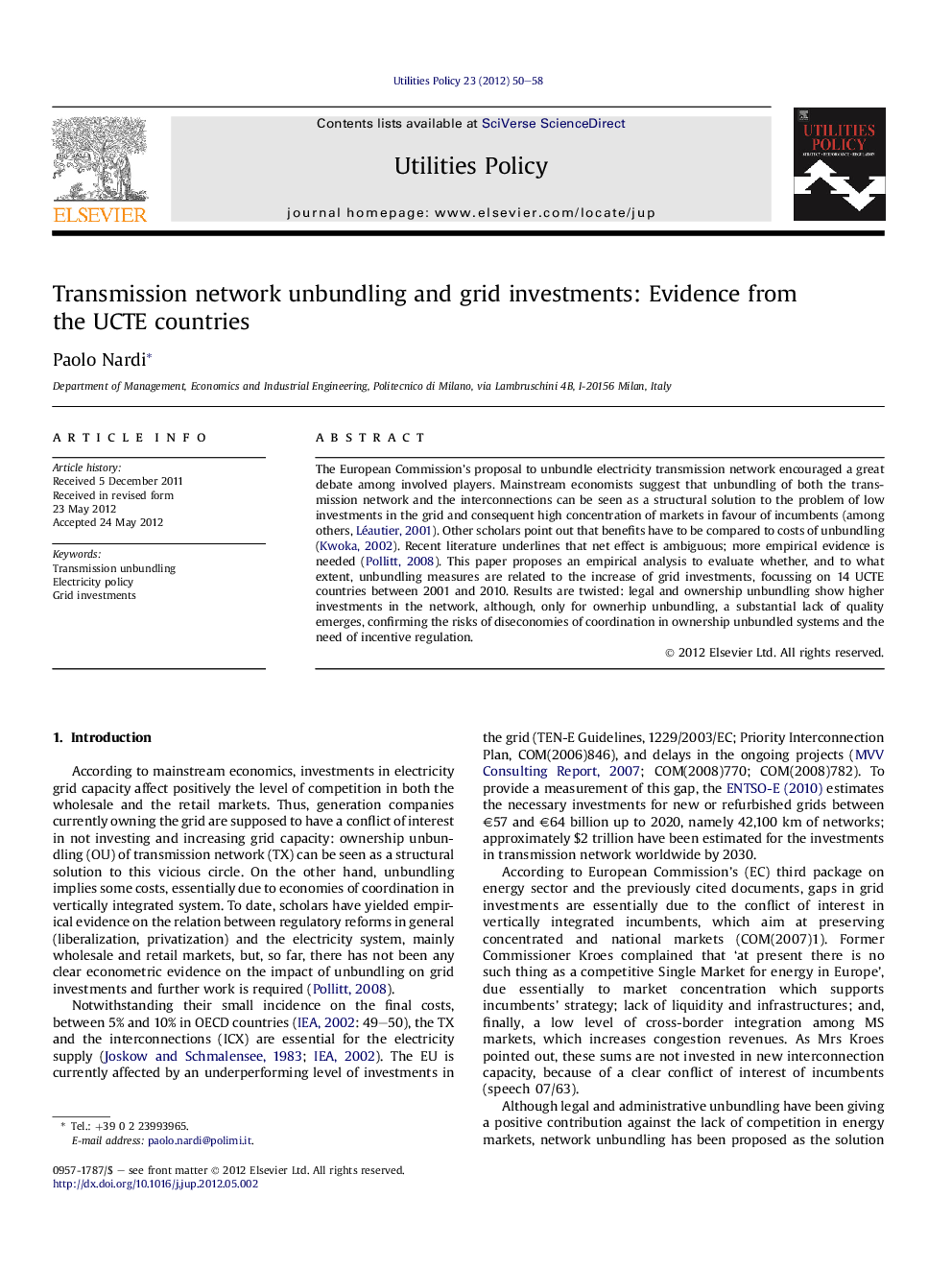| Article ID | Journal | Published Year | Pages | File Type |
|---|---|---|---|---|
| 1001087 | Utilities Policy | 2012 | 9 Pages |
The European Commission's proposal to unbundle electricity transmission network encouraged a great debate among involved players. Mainstream economists suggest that unbundling of both the transmission network and the interconnections can be seen as a structural solution to the problem of low investments in the grid and consequent high concentration of markets in favour of incumbents (among others, Léautier, 2001). Other scholars point out that benefits have to be compared to costs of unbundling (Kwoka, 2002). Recent literature underlines that net effect is ambiguous; more empirical evidence is needed (Pollitt, 2008). This paper proposes an empirical analysis to evaluate whether, and to what extent, unbundling measures are related to the increase of grid investments, focussing on 14 UCTE countries between 2001 and 2010. Results are twisted: legal and ownership unbundling show higher investments in the network, although, only for ownerhip unbundling, a substantial lack of quality emerges, confirming the risks of diseconomies of coordination in ownership unbundled systems and the need of incentive regulation.
Graphical abstractFigure optionsDownload full-size imageDownload as PowerPoint slideHighlights► Unbundling determines twisted impact on investments in national grid and tie-lines. ► Diseconomies of coordination emerge in ownership unbundled systems. ► Legal unbundling has a positive impact on grid investments, no impact on quality.
